#lorenz helmschmid
Explore tagged Tumblr posts
Text



▪︎ Peak from a Ceremonial Helmet.
Date: ca. 1505-1520
Artist: Probably by Lorenz Helmschmid (German, ca. 1445–1516)
Medium: Steel
#art#history#16th century#16th century armor#armor#steel#peak#helmet#Lorenz Helmschmid#ca. 1505#ca. 1520
52 notes
·
View notes
Text
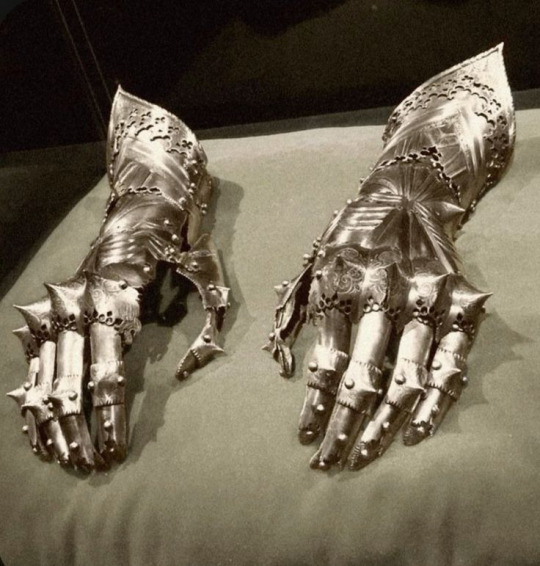
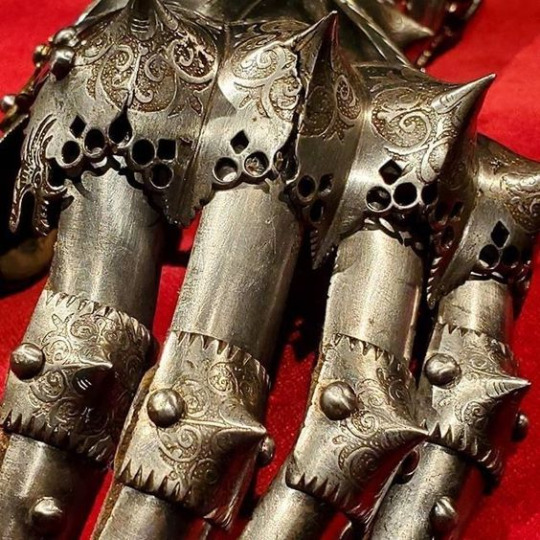
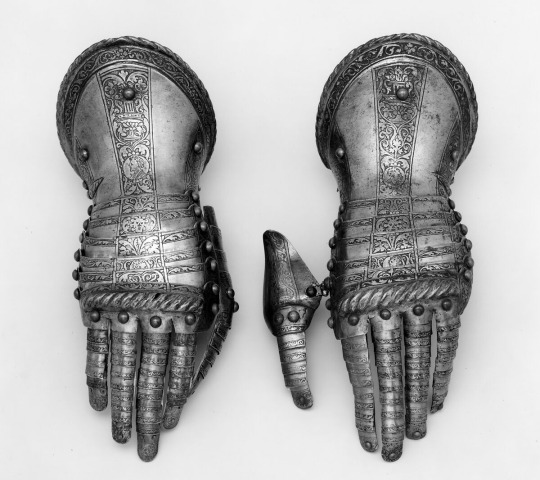
Some gauntlets at the new york met
Attributed to Lorenz Helmschmid German ca. 1490
Left Gauntlet of an Armor Garniture Made for Henri I de Montmorency (1534–1614), Comte de Damville and Constable of France
#medieval#armor#gauntlet#fantasy#grunge#dark academia#knight#dark aesthetic#girlblogging#house of the dragon#house targaryen#ancient#rhaenyra targaryen#aemond targaryen#game of thrones#gothic#gothcore#dark core gothique
259 notes
·
View notes
Text

Elements of a gothic styled armor that belonged to Holy Roman Emperor Maximilian I, attributed to Lorenz Helmschmid,
Harness Weight: 21.7 lbs/9.9 kg
Helmet Weight: 7.7 lbs/3.5 kg
Augsburg, Germany, ca. 1485, housed at the Kunsthistorisches Museum, Vienna.
#armor#gothic#europe#european#germany#german#hre#holy roman empire#renaissance#medieval#middleages#khm#vienna#art#history
338 notes
·
View notes
Text
just for funsies, because I'm bored on an Amtrak, the Veilguard companions as stuff I took photos of at the Philadelphia Museum of Art earlier today
Harding: Thought by Auguste Rodin / Davrin: Adjustable Chair designed by Josef Hoffman
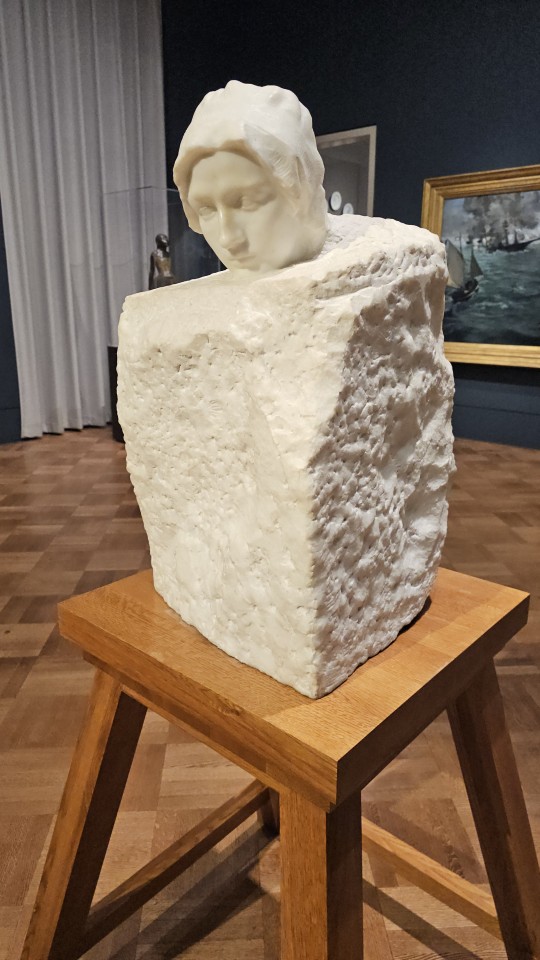
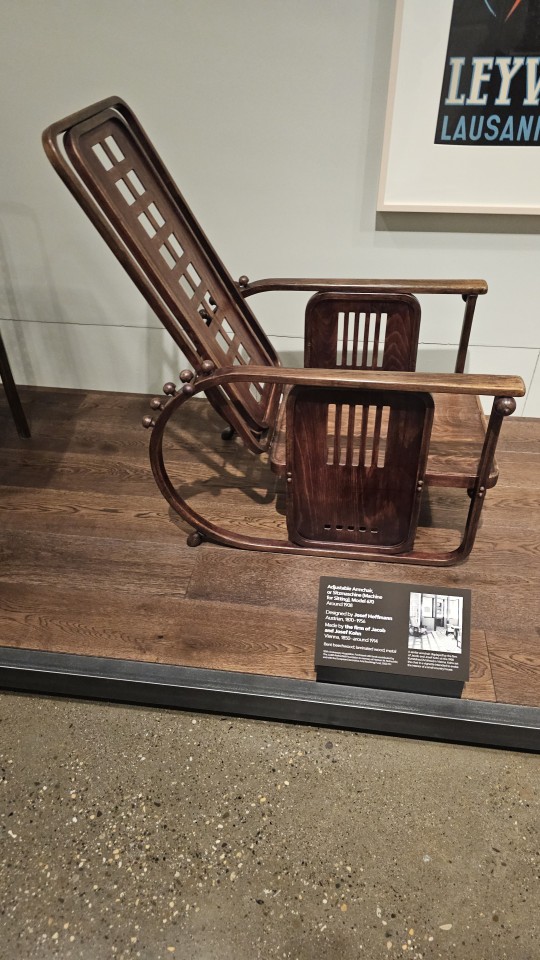
Emmrich: Candelabrum designed by Bruno Paul / Bellara: Figure In Mountain Landscape II by Peter Doig
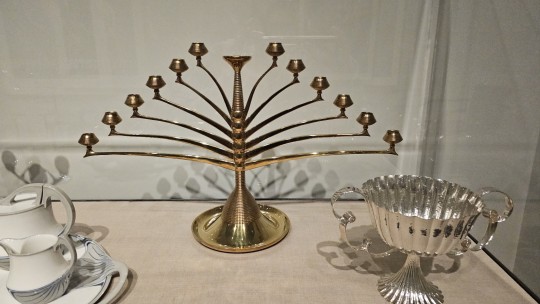
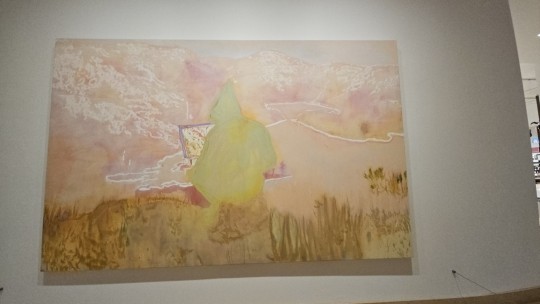
Lucanis: English tea machine / Taash: Peak of a ceremonial helmet attributed to the workshop of Lorenz Helmschmid
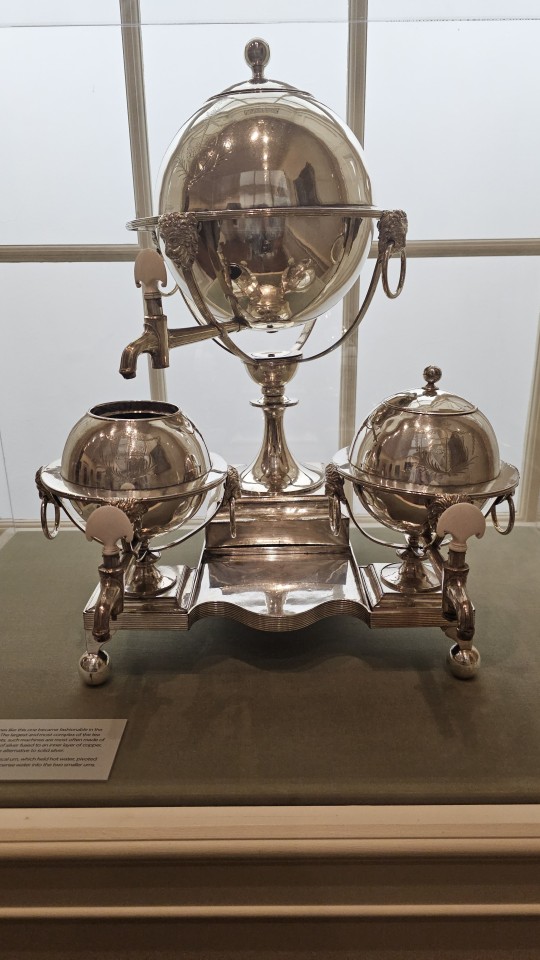

Neve: Liverpool from Wapping by John Atkinson Grimshaw
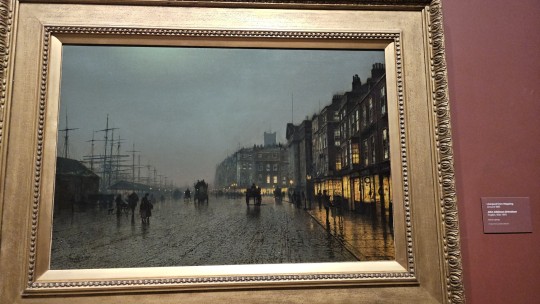
25 notes
·
View notes
Text
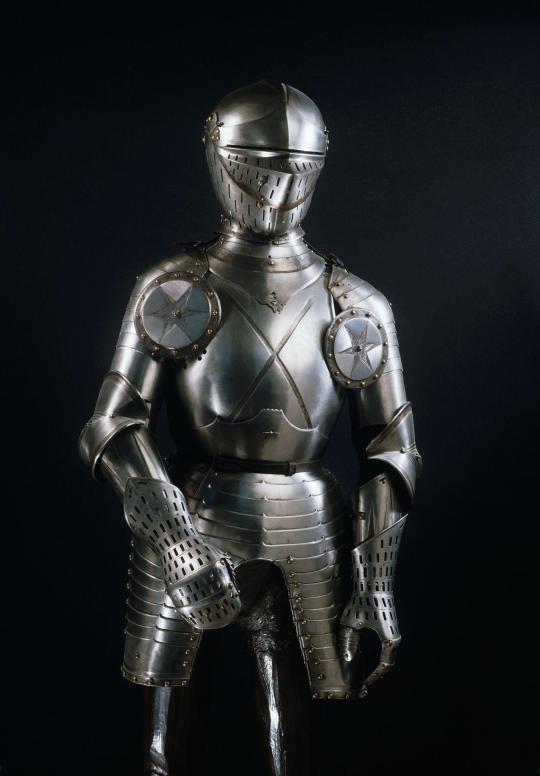


Zusammengesetzter Feldharnisch (Rest einer Garnitur?) | Kunsthistorisches Museum: Harnisch
Half Armor of Maximilian I
KULTUR: Süddeutsch DATIERUNG: 1495-1500 BESITZER:
KULTUR: Süddeutsch DATIERUNG: 1495-1500
BESITZER: entweder Kaiser Maximilian I. Sohn d. Friedrich III. von Habsburg (1459 - 1519) - GND oder König Philipp I. Sohn Maximilans I. von Habsburg (1478 - 1506) - GND
KÜNSTLER/IN: Lorenz Helmschmid zugeschrieben (erw. 1469, gest. 1515/16, Augsburg (Plattner))
VORMALS ZUGESCHRIEBEN AN: Sigmund Sohn d. Friedrich IV. von Habsburg (1427 - 1496) - GND
MATERIAL/TECHNIK: Eisen, geschmiedet, getrieben. Dekor: teils gebläut, teils feuervergoldet (Goldschmelz), teils Pudergold (moderne Retusche). Nietkappen: Messing. Leder (großteils modern). Schnallen: Eisen (modern).
MASS: Höhe inkl. Sockel: 208 cm x B 73 cm x T 71 cm Höhe exkl. Sockel: 175 cm Objekthöhe: 110 cm Gesamtgewicht exkl. Figurine, exkl. Sockel: 13,6 kg
*
More information from George Steel | Facebook
Armure de campagne à construire (probablement partie d'un casque). Travail allemand, peut-être Augsbourg Vers 1495-1500 Propriétaire : soit l'empereur Maximilien Ier, fils de Frédéric III de Habsbourg (1459 - 1519) soit le roi Philippe Ier, fils de Maximilien Ier de Habsbourg (1478 - 1506) ; anciennement attribué à l'archiduc autrichien Sigmund, fils de Frédéric IV de Habsbourg (1427 - 1496). Artisan : probablement Lorenz Helmschmid (vers 1445, mort en 1515/16, Augsbourg (Plattner)). Kunsthistorisches Museum de Vienne.
L'Ordre de la Toison d'or ou « Signe de Gédéon » est un ordre de chevalerie établi par Philippe III le Bon, duc de Bourgogne, en 1430, le jour de son mariage avec la princesse Isabelle de Portugal. C'est un ordre dynastique et l'un des prix les plus anciens et les plus honorifiques d'Europe. L'image de l'Ordre de la Toison d'or est la principale caractéristique de la décoration ornementale de cette armure de campagne. La chaîne de l'Ordre et la Toison d'or sont représentées sur le collier de la plaque. Les bords des assiettes sont décorés de symboles de l'Ordre sous forme de silex, de silex, de flamme et de la croix de Saint-André, qui est également frappée plus grande sur la cuirasse et le dos.
1 note
·
View note
Text

Gauntlets of Maximilian I, by Lorenz Helmschid - 1485. Lorenz Helmschmied or "Helmschmid" was a German armourer and a member of the Helmschmied family of armourers from Augsburg. He was one of the primary armourers to the Habsburg court of the Holy Roman Emperors Frederick III and Maximilian I, and created some of the most technically innovative and artistically complex armours of the late-fifteenth and early-sixteenth centuries.
0 notes
Text

Combination Sallet and Bevor of Maximilian I by Lorenz Helmschmid, circa 1495. Kunsthistorisches Museum, Vienna, Imperial Armoury
#maximilian i#helmet#armour#medieval#middle ages#habsburg#art#history#europe#european#holy roman emperor#holy roman empire#knights#knight#emperor#lorenz helmschmid#austria#germany#sallet#bevor#augsburg#vienna#german#austrian#habsburg empire#helmets
457 notes
·
View notes
Text

lorenz helmschmid. 1840s.
3 notes
·
View notes
Text
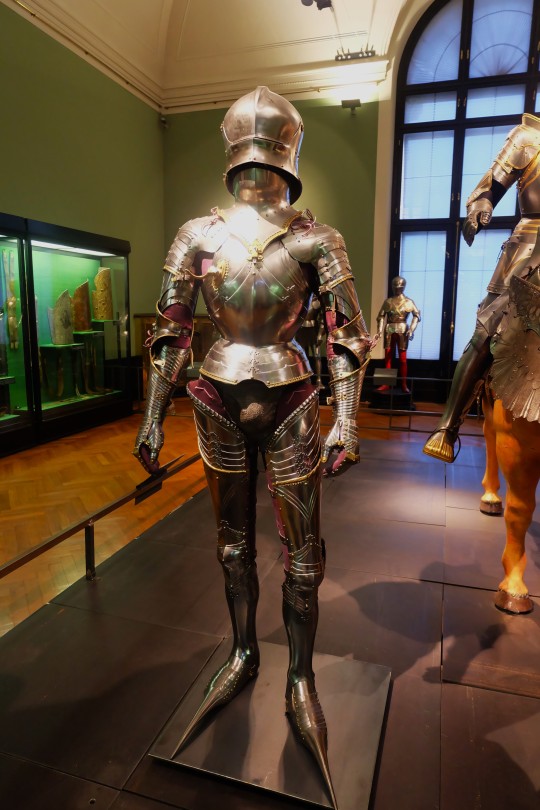
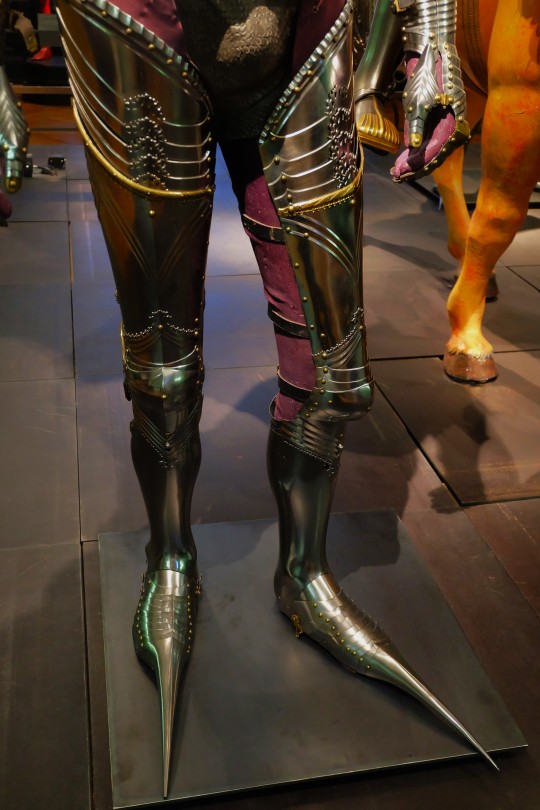



Gothic Armour of Emperor Maximiliian I of the Holy Roman Empire from Augsburg, Germany dated to 1485 on display at the Weltmuseum in Vienna, Austria
This masterpiece, made by the hand of Augsburg armourer Lorenz Helmschmid, is one of the most sophisticated examples of the late Gothic style of armour. Made to measure for the Emperor, the suit was worn to signify his role as supreme commander of the imperial forces during wartime.
Photographs taken by myself 2022
#armour#armor#fashion#art#holy roman empire#hapburgs#renaissance#15th century#military history#german#germany#weltmuseum#vienna#barbucomedie
53 notes
·
View notes
Photo

Combination Sallet and Bevor of Maximilian I by Lorenz Helmschmid, circa 1495. Kunsthistorisches Museum, Vienna, Imperial Armoury
6 notes
·
View notes
Text

“The famous Closed Sallet of Emperor Maximilian I, attributed to Lorenz Helmschmid, Augsburg, Germany, ca. 1495, housed at the Kunsthistorisches Museum Vienna”
19 notes
·
View notes
Text



▪︎ Armor.
Culture: Augsburg
Date: ca. 1485
Owner: Emperor Maximilian I son of Frederick III von Habsburg (1459 - 1519)
Maker: Lorenz Helmschmid, (Plattner) (ca. 1445, died 1515/16, Augsburg)
Medium: Bare iron, gold-plated brass, leather.
#15th century#15th century art#15th century armor#history#museum#armor#augsburg#emperor maximilian i#Lorenz Helmschmid#ca. 1485
216 notes
·
View notes
Text
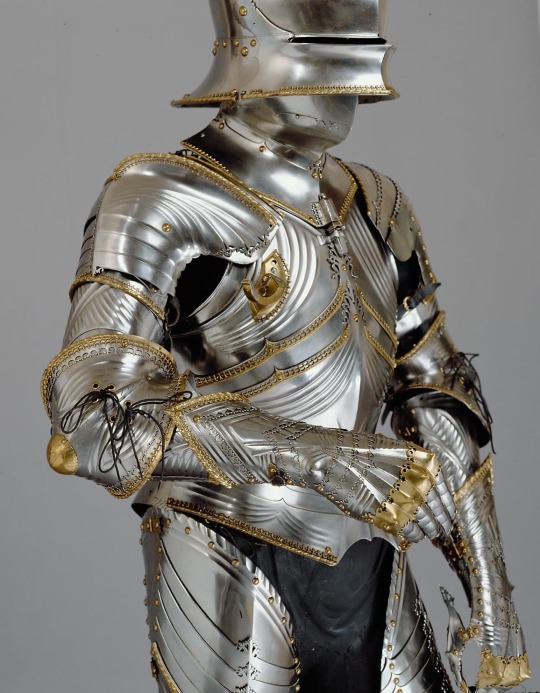
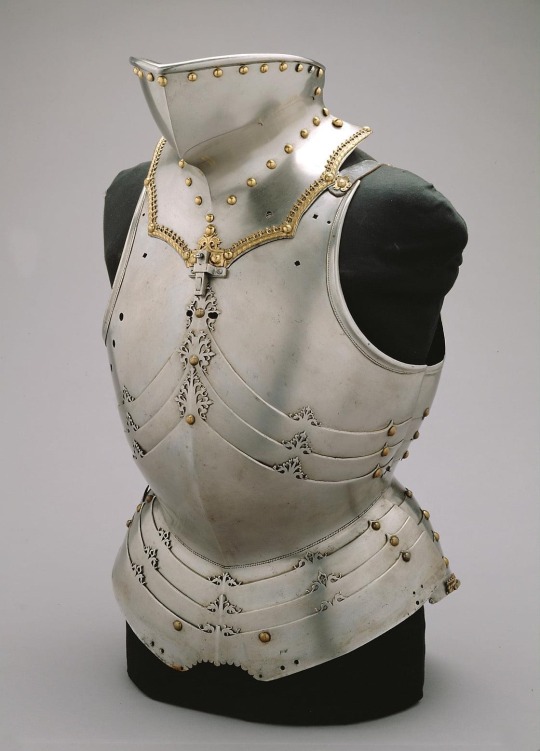
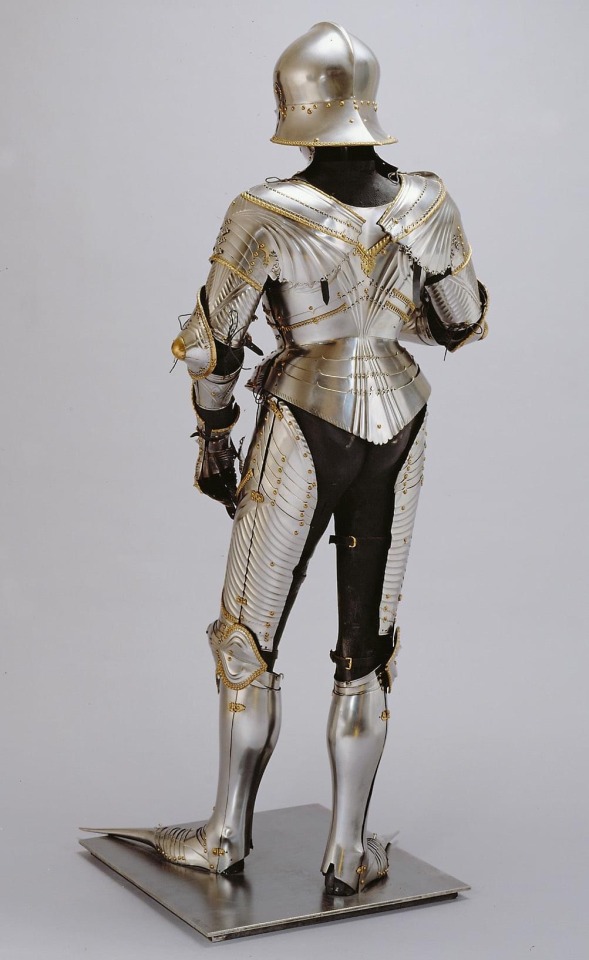
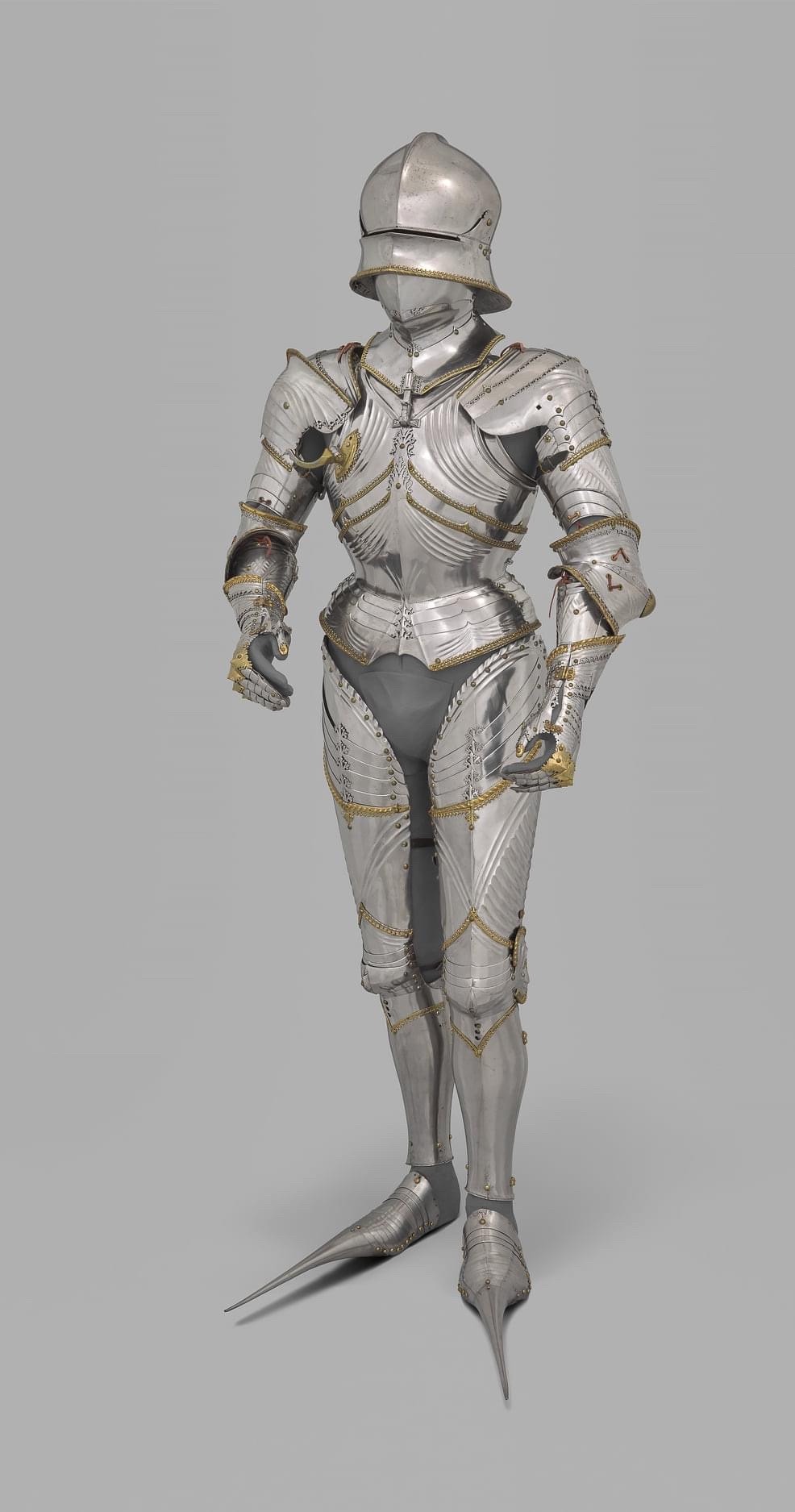
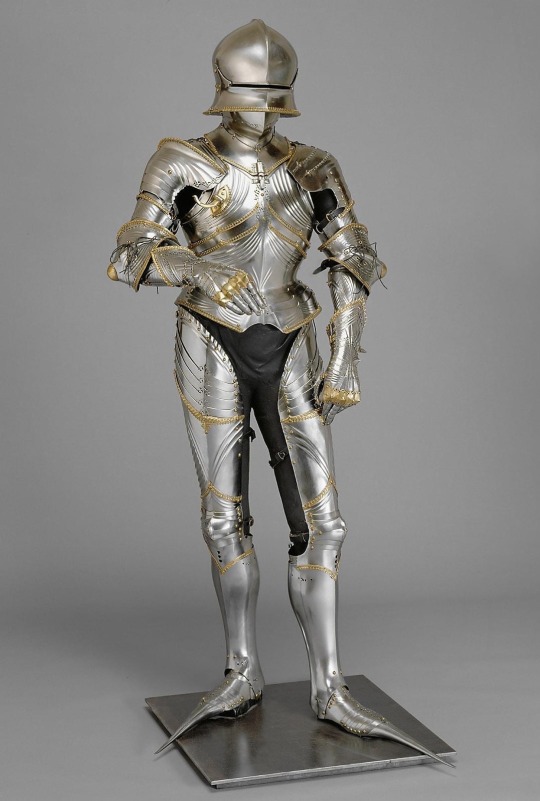
Field Armor of Maximilian I.
Lorenz Helmschmid (German, Augsburg, ca. 1445–1516).
Date: 1479–80.
Culture: South German, Augsburg.
Medium: Steel, copper alloy, leather
Dimensions:
H. 70 5/8 in. (179.5 cm).
W. 29 7/8 in. (76 cm).
D. 27 in. (68.5 cm).
Kunsthistorisches Museum Wien, Hofjagd- und Rüstkammer.
Lorenz Helmschmid does not normally work for Sigmund von Tirol, the owner of this armor, but primarily for Emperor Maximilian I, whose armor orders can be partially reconstructed from the so-called Thunian sketchbook. This armor was probably also ordered by Maximilian. He probably wore it as a young prince and later gave it to his uncle Sigmund on the occasion of his wedding to his second wife Katharina von Sachsen in 1484.
138 notes
·
View notes
Photo

An armor garniture in classic gothic style, belonging to Emperor Maximilian I, attributed to Lorenz Helmschmid, German, Augsburg, ca. 1480, housed at the Kunsthistorisches Museum.
#armor#armour#gothic#Sallet#Maximilian I#Lorenz Helmschmid#European#Europe#German#Germany#Augsburg#KHM#art#history
591 notes
·
View notes
Photo

Pair of gauntlets of Maximilian I, attributed to Lorenz Helmschmid, ca. 1490.
228 notes
·
View notes
Photo
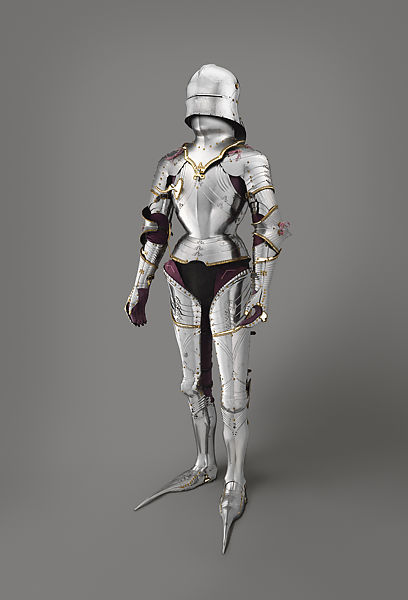
Lorenz Helmschmid (German, Augsburg, ca. 1445–1516). Steel, copper alloy, leather. H. 70 5/8 in. (179.5 cm); W. 29 7/8 in. (76 cm); D. 27 in. (68.5 cm)
Marking the 500th Anniversary of the death of Maximilian I (1459–1519), The Metropolitan Museum goes medieval with a truly metal exhibition centered on his life and times as the Holy Roman Emperor who reigned over large swaths of Europe during the first decades of the 16th-century. Considering that Maximilian expanded his rule by waging war, armor came in especially handy, and the show presents stunning examples crafted by the continent’s A-list armorers, including one suit exquisitely filigreed in gold and copper. Rounding things out are manuscripts, paintings, sculpture, glass, tapestry and toys related to his rule. https://www.timeout.com/newyork/attractions/best-museum-exhibitions-in-nyc Now through January 2020
#The Met#Metropolitan museum#Maximilian#Holy Roman Emperor#Holy Roman Empire#Roman#Ancient#Armour#Amor
5 notes
·
View notes